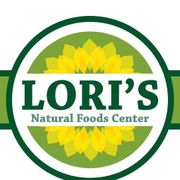
The term “organic” is frequently used in nutrition. It’s typically associated with good health, yet it’s not always clear what precisely it means. It’s important to understand the nuances if you want to adopt an organic food diet. Here’s what you should know about its meaning and how it can benefit you.
Your Organic Food Questions Answered
What exactly is organic?
In the simplest terms, the word refers to the agricultural processes used to grow and nourish the products. The guidelines for what is considered truly organic vary in different parts of the world. In the United States, crops grown under organic conditions must not be subjected to synthetic pesticides, fertilizers, herbicides, or modified genes (GMOs). Also, livestock used for meat and dairy products must be reared in strict living conditions, with a diet of organic forage and feed and the ability to graze on pasture and perform other innate behaviors. Their diet must be completely free of antibiotics and growth hormones.
What are the different organic categories?

Organic foods are broken down into several distinct categories as assigned by the United States Department of Agriculture (USDA). Products labeled “100% organic” are made with 100% organic ingredients. Products labeled “organic” are made with a minimum of 95% organic ingredients. Some say they are “made with organic ingredients,” which means that at least 70% of the ingredients are organic, with the other 30% produced without GMOs and other restrictions. Anything less than this may specify in the ingredient list that they are made with organic ingredients.
What are the benefits?
There are many benefits associated with consuming food that is organic. Because it’s free of preservatives, it is fresher than conventional food. Most organic farming practices are also rooted in better environmental practices. They use less energy, for example, and may minimize erosion, prevent pollution, and conserve as much water as possible. You also never have to worry about consumption of foods raised on antibiotics or animal byproducts.
What does the seal of approval mean?
The USDA issues strict regulations, and only products that are compliant may carry the USDA seal of approval. This guarantees that the product you purchase is certified organic because it is harvested and processed according to the guidelines established by the USDA. If your goal is to transition to a purely organic diet, the seal serves as a guide so you can make more informed decisions.
If you seek delicious organic foods in Rochester, NY, visit Lori’s Natural Food Center. Serving the community since 1981, the store carries an extensive range of products, including organic vegetables and meat, along with supplements and non-GMO food. Visit the website for more information, or call (585) 424-2323 to speak with a representative.
About the Business
(511 reviews)
Have a question? Ask the experts!
Send your question

